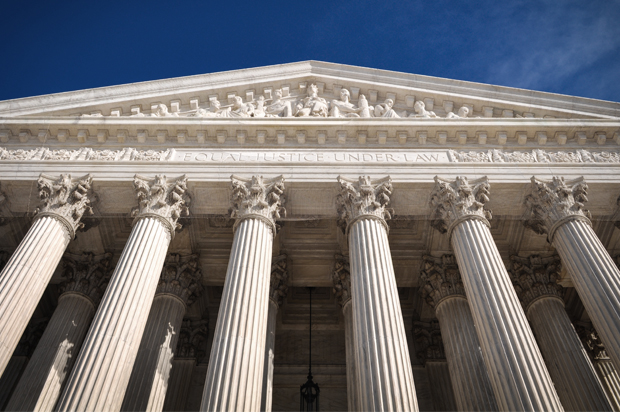Less than a week after casting his first vote as a justice of the Supreme Court, Neil Gorsuch and his eight fellow judges listened to President Donald Trump’s assistant solicitor general make an argument about citizenship that many of them felt was over the top.
Assistant to the Solicitor General Robert A. Parker had his work cut out for him when arguing for the Trump administration’s position in Maslenjak v. United States, a case that hinges on whether naturalized American citizens can lose their citizenship in a criminal proceeding if they are discovered to have made an immaterial false statement. Despite his best efforts, Parker seemed incapable of effectively addressing the justices’ increasingly incredulous questions.
Chief Justice John Roberts asked Parker if, “some time ago, outside the statute of limitations, I drove 60 miles an hour in a 55-mile-an-hour zone,” had not been caught and lied many years later after being asked about it, “you can knock on my door and say, ‘Guess what, you’re not an American citizen after all?'”
When Parker responded that this was the case, Roberts couldn’t contain his disbelief. “Oh come on!” he replied. Roberts pressed him on whether the administration was arguing that someone should lose citizenship by leaving out that detail, and Parker insisted, “If we can prove that you deliberately lied in answering that question, then yes.”
Justice Sonia Sotomayor asked whether this logic could be applied to embarrassing childhood nicknames, while Justice Elena Kagan posed a hypothetical possibility that most American can relate to, remarking that she was a “little bit horrified to know that every time I lie about my weight it has those kinds of consequences.”
Parker told her that their interpretation of the law applied to even trivial false statements.
Justice Stephen Breyer pointed out the obvious — namely, that the Trump administration’s interpretation of immigration law was such that it “would throw into doubt the citizenship of vast percentages of all naturalized citizens.”
Roberts added, “If you take the position that not answering about the speeding ticket or the nickname is enough to subject that person to denaturalization, the government will have the opportunity to denaturalize anyone they want.”
Perhaps the most scathing condemnation came from Justice Anthony Kennedy, however, who bluntly told Parker that his argument “is demeaning the priceless value of citizenship. You’re arguing for the government of the United States, talking about what citizenship is and ought to mean.”


